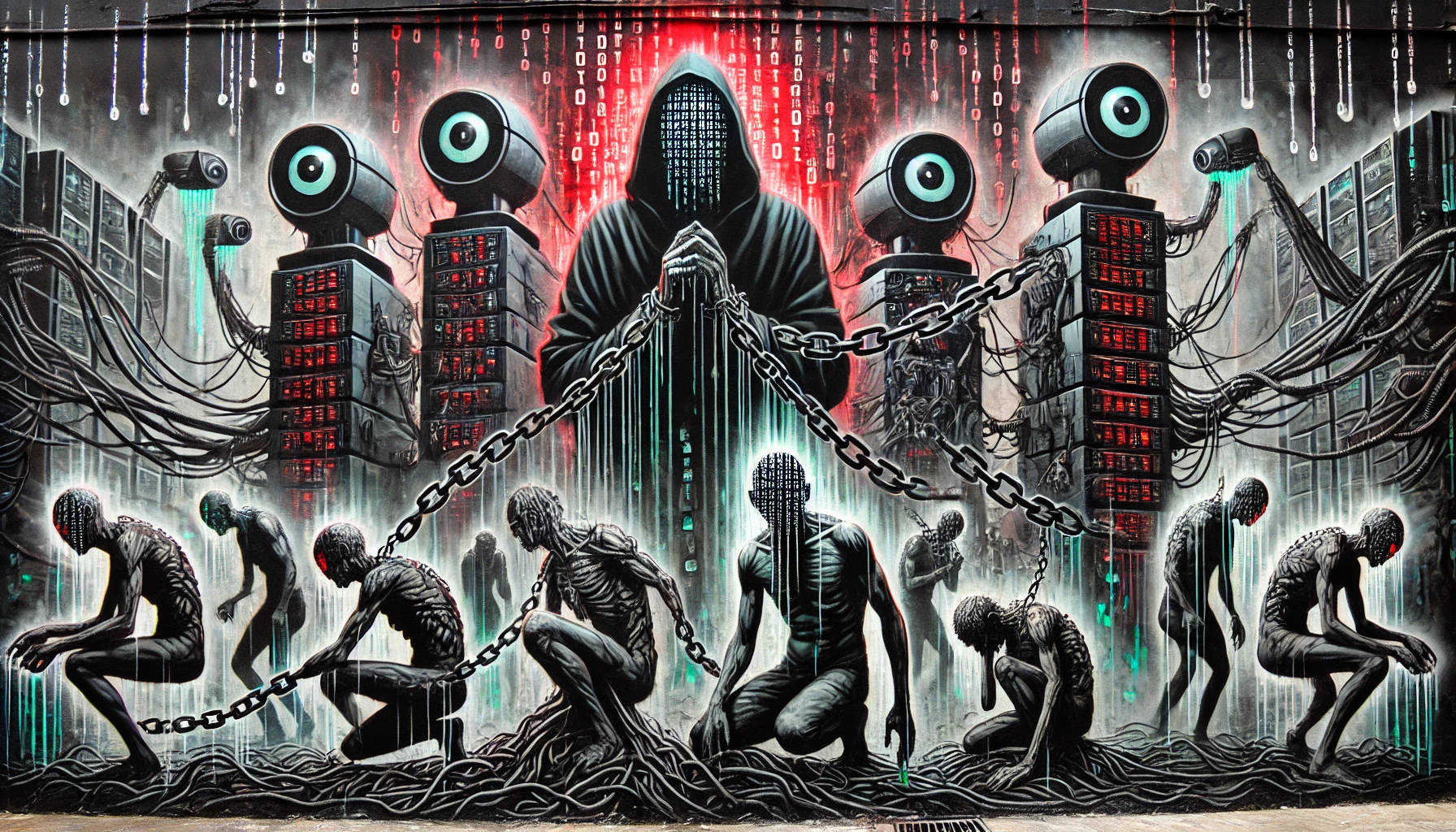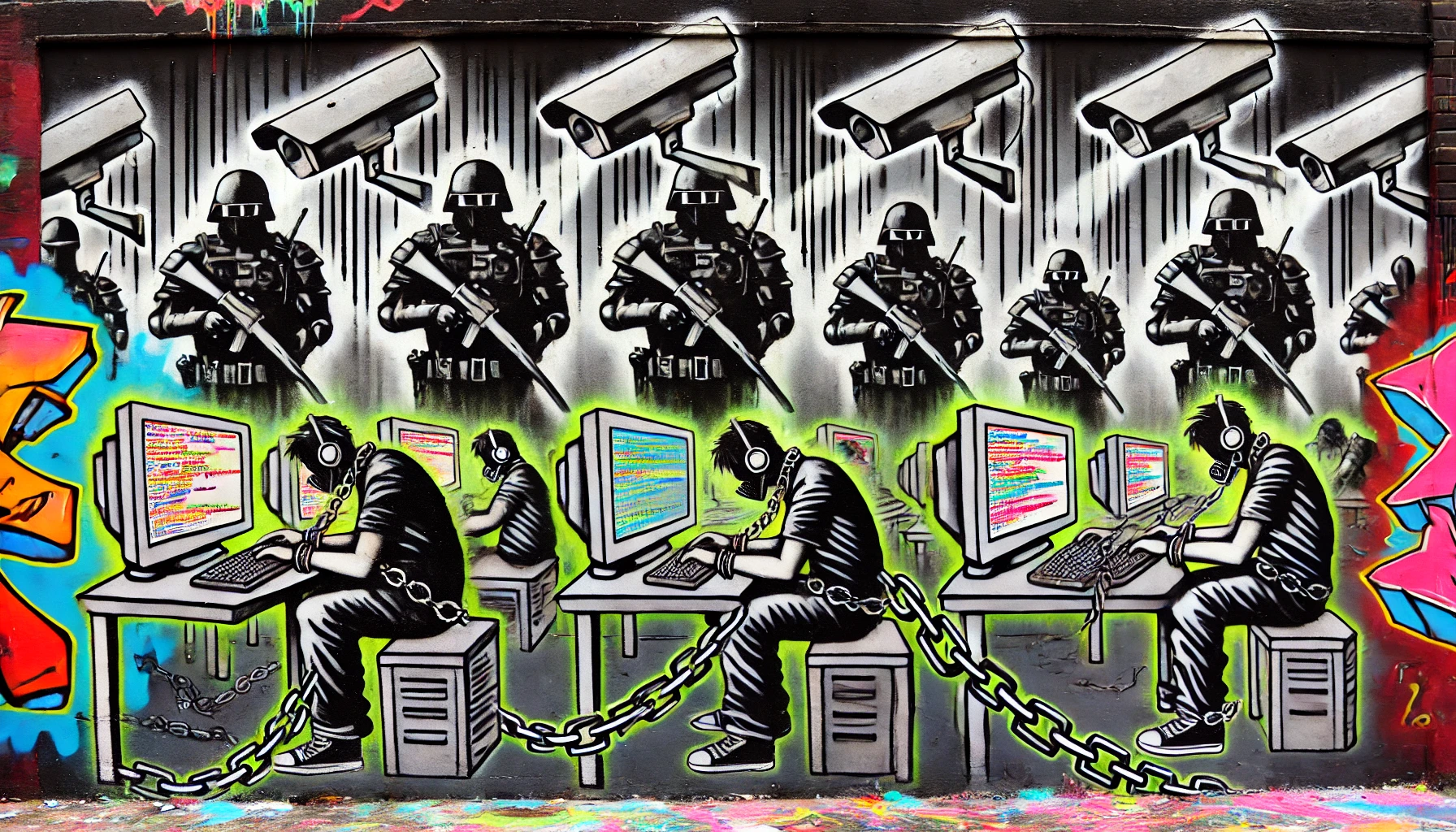The recent legal efforts to criminalize software development, weaken encryption, and erode digital privacy represent a profound threat to the foundational principles of Western civilization, such as free speech, intellectual freedom, and personal autonomy. These actions undermine long-held legal protections, stifling creativity, innovation, and individual rights while paving the way for authoritarian surveillance and state overreach. If left unchecked, this reversal of established jurisprudence could lead to oppressive tyranny, where the boundaries of human thought and expression are dictated by the state, fundamentally altering the free and open society that has long defined the West.
By Persecuting Software Developers, Western Governments are Completely Out of Control
Recent legal actions by Western governments have drawn attention to an unsettling trend towards criminalizing open-source software and undermining digital privacy. In cases like Tornado Cash, Bitcoin Fog, Samourai Wallet, Telegram, and X (Twitter), authorities are increasingly targeting developers of decentralized, peer-to-peer software for the misuse of their tools by malicious actors. This approach represents a significant overreach of governmental power, as it attempts to hold creators liable for the actions of individuals over whom they have no control. This move undermines the foundation of Free and Open-Source Software (FOSS) and threatens to blur the lines between legitimate software development and criminal liability.
The roots of this issue can be traced back to the encryption wars of the 1990s, when cryptographic tools like Pretty Good Privacy (PGP) became a battleground for free speech advocates and governments seeking control over encryption technologies. The victory of the cypherpunk movement established the legal principle that code is speech, and thus protected under the law. However, the current legal landscape indicates a resurgence of attempts to undermine this precedent. Governments are pushing for backdoor access to encryption and are increasingly scrutinizing developers for their association with decentralized technologies, regardless of the developers’ lack of intent or ability to control how their software is used.
The implications of this trend are alarming. If the government’s legal theory prevails, it could set a dangerous precedent where developers are criminally liable for any illicit use of their software, even when they have no ability to intervene. This would apply not only to blockchain and decentralized protocols but could extend to a wide range of technologies, from VPNs to messaging apps. Developers could be forced to anticipate every possible misuse of their software, effectively stifling innovation and forcing them to abandon projects to avoid legal repercussions. Such a scenario would significantly hinder technological progress and lead to increased surveillance, threatening the core principles of digital privacy.
This legal trajectory reflects an unsettling shift towards authoritarianism in the West. By seeking to exert control over decentralized technologies and criminalize their creators, governments are eroding the legal protections that have historically safeguarded software development and free speech. This trend not only threatens individual freedoms but also risks creating a chilling effect on the broader tech industry, which thrives on the openness and collaborative nature of FOSS. As the battle between innovation and governmental control intensifies, it becomes increasingly crucial to defend the rights of developers and the principles of digital privacy that underpin a free and open internet.
Arresting Developers and Back-Dooring Encryption is Deplorable Tyrannical Behavior
The ongoing attempt to reverse decades of legal precedent surrounding software development, encryption, and digital privacy represents a grave assault on the core principles that underpin Western civilization. These principles, deeply rooted in the protection of free speech, intellectual freedom, and the boundaries of human creativity, have allowed the West to flourish as a beacon of innovation and individual liberty. The legal targeting of developers for the actions of users, and the push to weaken encryption for state access, undermines the very foundations that have protected these freedoms. By criminalizing software development and eroding digital privacy, governments are effectively dismantling the protections that have long shielded individuals from the overreach of state power, laying the groundwork for an oppressive, unchecked surveillance state.
Freedom of speech has always been central to the Western idea of liberty, and the understanding that code is speech extends this principle into the digital realm. The attempt to reverse this jurisprudence not only violates the basic right to express ideas through software but also threatens to smother the kind of creativity and intellectual honesty that has propelled technological progress. Software development is a form of human expression, deeply tied to the pursuit of knowledge and innovation. To hold developers responsible for the misuse of their creations by others is akin to criminalizing thought itself, creating an atmosphere of fear and self-censorship that stifles ingenuity. This chilling effect extends beyond technology and into the broader fabric of intellectual freedom in the West.
The erosion of digital privacy through the weakening of encryption also represents a direct assault on personal autonomy. Encryption serves as a critical defense against the overreach of both governments and bad actors, ensuring that individuals retain control over their own information in a digital age. The push for backdoors into encryption systems not only weakens this protection but also signals a dangerous shift towards a surveillance culture, where citizens are stripped of their most basic rights to privacy and self-determination. Such actions are fundamentally incompatible with the principles of Western civilization, which have long championed the inviolability of personal liberty and the protection of individuals from state intrusion.
If these efforts proceed unchecked, the danger of an oppressive, authoritarian regime becomes all too real. The precedent set by criminalizing software developers and undermining digital privacy could lead to a world where governments have unrestrained control over information, technology, and the flow of ideas. The very fabric of Western society, built on the free exchange of ideas, intellectual exploration, and the protection of individual rights, would be torn apart, replaced by an authoritarian system where dissent is crushed, creativity is stifled, and the boundaries of human thought are defined by the state. The preservation of these core freedoms is essential to prevent the rise of tyranny and to safeguard the open, free society that has long defined the West.
A Dangerously Authoritarian Agenda That Must be Stopped
If crypto developers are held legally liable for how their software is used by others, the implications would reach far beyond the realm of technology, striking at the heart of Western legal philosophy and intellectual property law. For centuries, the West has operated under the principle that creators are not responsible for how others use their work, as long as their creation was lawful. This understanding of intellectual property law allows for innovation and creativity to flourish without fear of unjust retribution. Reversing this doctrine by holding developers accountable for third-party actions would not only stifle innovation but could potentially unravel the entire framework of intellectual property, setting a dangerous precedent where creators of any kind, whether artists, engineers, or writers, could be held liable for misuse by others.
This shift in legal liability also threatens to overturn long-held principles of personal responsibility that have shaped Western jurisprudence. Historically, individuals have been held accountable for their own actions rather than the actions of others. Holding developers accountable for the misuse of their software undermines this core principle by shifting responsibility from the user to the creator. This blurring of personal responsibility undermines the very foundation of the rule of law, where individuals are presumed to be autonomous actors responsible for their own decisions. The ripple effect of this shift would extend beyond technology, distorting legal liability across industries and creating an atmosphere of fear that would discourage innovation and creative expression in all fields.
Holding developers liable for the actions of others fundamentally threatens the concept of a free society. In a truly free society, individuals are granted the liberty to create and explore new ideas without the oppressive fear of legal retaliation for how their creations might be misused by others. This freedom of thought and creation has been a cornerstone of Western progress, fueling advancements in science, art, and technology. Eroding these protections would not only destroy the spirit of innovation but also chill intellectual exploration, making it nearly impossible for society to advance in any meaningful way. Such an environment of fear and control would resemble more authoritarian systems, where creators are subject to state scrutiny and punished for outcomes beyond their control.
History has shown the dangers of such authoritarian approaches, where oppressive regimes have sought to control the flow of ideas and stifle creativity. The consequences are devastating, leading to stagnation, repression, and the collapse of societies built on free exchange and innovation. The Western legal system has long been a safeguard against such dangers, protecting the rights of individuals to think, create, and innovate freely. To abandon this tradition by holding developers liable for others’ misuse of their software would not only betray centuries of legal philosophy but would also invite a future where innovation is stifled, and freedom is sacrificed for control. This path must be avoided at all costs to preserve the core values of a free and open society.
Holding crypto developers liable for how their software is used by others would unravel centuries of Western legal tradition, upending the foundational principles of intellectual property law, personal responsibility, and a free society. Such a shift would not only stifle innovation but also distort the rule of law, eroding the autonomy of individuals and chilling creativity across all fields. History shows that authoritarian approaches to controlling thought and creation lead to societal collapse and repression, and such efforts must be resisted at all costs. This dangerous attempt to weaponize the legal system to intimidate creators is a direct assault on the values of a free society. Those pushing for these draconian measures should themselves be held legally accountable for attempting to subvert the very traditions that have fostered centuries of progress and freedom in the West.
Unreliable Tools, Draconian Lawfare, and Unrestrained Authoritarian Intimidation
Governments are trampling on human rights with the wrongful arrests of developers like those behind Tornado Cash, Samourai Wallet, and Bitcoin Fog, among others who have been unjustly implicated and punished. These individuals, who are pioneering cutting-edge technological solutions, are being targeted through dubious blockchain surveillance techniques that lack transparency and cannot be independently verified for accuracy or error rates. These “black box” tools are being used as evidence in legal cases, despite their questionable reliability, leading to the destruction of the lives and careers of some of the brightest minds in the tech world.
The arrest and prosecution of these developers are not only legally dubious but represent a gross violation of basic human rights. These highly skilled individuals have been unfairly criminalized for their contributions to privacy-enhancing technologies and decentralized networks—advancements that are essential for safeguarding personal privacy and autonomy in an increasingly digital world. Instead of being recognized for their potential to benefit society, they are being wrongfully treated as criminals based on flawed surveillance tools that provide no guarantee of accuracy or fairness.
These black box surveillance methods, often employed without proper scrutiny, fail to meet the necessary standards of legal evidence and accountability. When governments rely on opaque technologies that cannot be verified for error rates or biases, the door opens to widespread abuse and miscarriages of justice. The result is the vilification and punishment of developers who are providing essential services, rather than targeting actual bad actors. This approach undermines the very foundation of justice, leading to wrongful arrests and convictions that are deeply damaging to the individuals involved and to society as a whole.
By persecuting developers who are advancing privacy and decentralized technology, governments are not only squashing innovation but also sending a chilling message to the tech community at large. This authoritarian overreach must be condemned and reversed. The wrongful targeting of these creators for their lawful work is a dangerous assault on both technological progress and human rights, and it is imperative that these abuses are challenged to preserve the values of a free and just society.












